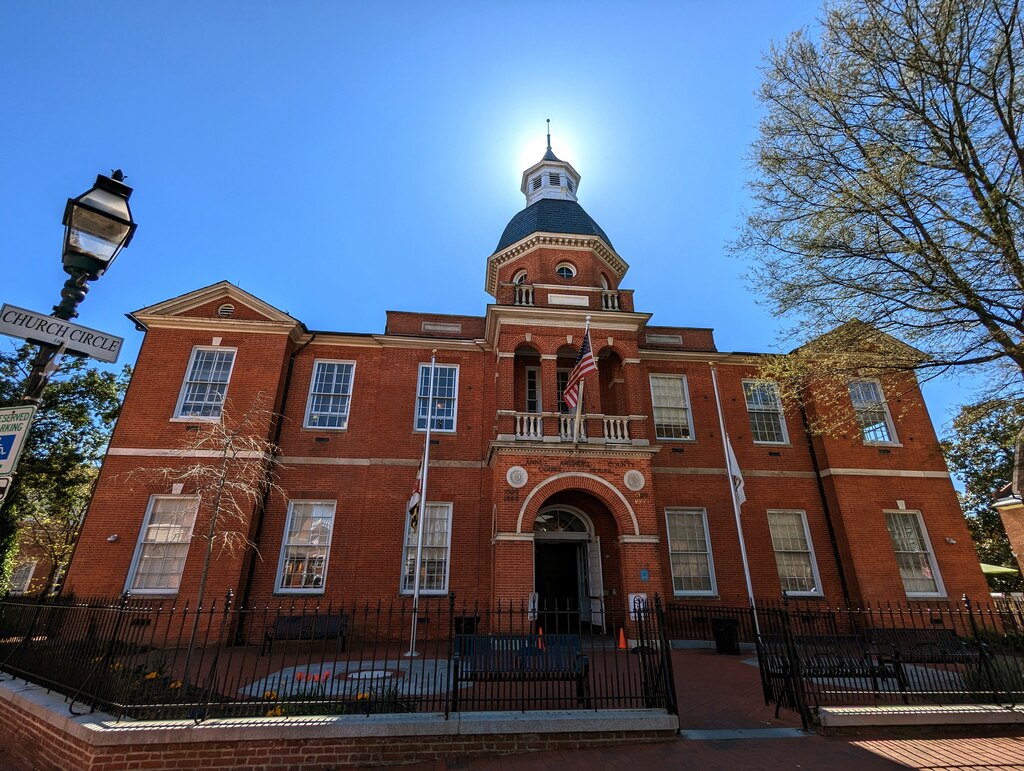When Anne Arundel County voters rejected a judge appointed by Gov. Wes Moore last month, they spurned a former public defender rated as highly qualified by a nominating panel for a corporate lawyer who was, well ... not.
As I wrote after the election, they voted — intentionally or not — against diversity in a state that still values it. Circuit Court Judge Ginina A. Jackson-Stevenson was the first Black judge defeated by a white challenger in Maryland since 2004.
Now, the governor has doubled down on his pick.
Weeks after Jackson-Stevenson lost her seat on the county bench, Moore appointed her again. This time, he named her to fill one of two recent Circuit Court vacancies at the Annapolis courthouse.
“He stands behind her,” said Amanda La Forge, chief counsel to the Democratic governor. “He picked her the first time because he felt she was eminently qualified to fill the seat. She was only there for a year or so. This gives her the opportunity to do the job.”
It’s a startling reversal, one unseen in Maryland for a generation.
“I’m excited for her,” said Del. Sandy Bartlett, vice chair of the House Judiciary Committee. “Congratulations!”
The appointment is significant, not just because Moore stood up for someone he appointed. Jackson-Stevenson’s loss was a rare setback after years of efforts by multiple governors to increase diversity in the Maryland judiciary.
Her reappointment comes as the General Assembly prepares to consider a recommendation by the state’s judiciary to change Maryland’s constitution and end contested elections for circuit court judges.
Moore has yet to take a position on the idea.

Jackson-Stevenson declined to comment on Moore’s decision to keep her in judicial robes. Her office deferred comment to the Maryland Judiciary, which referred questions to Moore’s office.
La Forge said Moore was not sending a message to voters, or making any comment on their choice to replace Jackson-Stevenson, Tom Casey.
“I don’t think so,” she said. “There are two additional vacancies on that court.”
And yet, the reversal of fortunes for Jackson-Stevenson fits with Maryland’s complicated system for selecting judges, one set up more than 50 years ago and tweaked by executive order.
A Judicial Nominating Commission vets applicants for the state’s district, circuit and two appellate courts. It reviews applications, consults with bar associations and conducts interviews, then sends the most highly rated candidates to the governor for appointment. They remain in a pool of vetted choices for two years.
“It’s a pretty grueling process,” La Forge said.
District Court judges — who preside over preliminary criminal hearings, traffic offenses and simple trials — and appeals court judges face retention elections after being appointed, an up-or-down vote with no challengers. They serve for 10 years and then go before voters again.
In the Circuit Court, judges preside over more complicated issues and jury trials. They face contested elections after being appointed, where anyone can file to replace them. Orphans court judges, who consider wills and estates, are chosen in open elections.
Created by the Maryland Judiciary, the Workgroup to Study Judicial Selection took two years to make its recommendations. It proposed opening the nominating commission to more public comment, requiring state Senate confirmation and retention elections. Terms would be shortened from 15 to 10 years, and judges would face another Senate hearing and election.
Gov. Larry Hogan appointed Jackson-Stevenson, then in private practice, as a court magistrate in 2020, making her the first Black woman to hold the job. She presided over hearings and evidentiary matters, mostly in family law.
When Moore appointed her three years later, she became just the fourth Black judge in Anne Arundel County history.
Unseating a judge is not unheard of: 14 have lost since 1985. Jackson-Stevenson was the fourth rejected by Anne Arundel voters during those four decades, and the second Black judge to lose to a white challenger.
She finished third out of four candidates in November, with voters asked to pick two. She ran on a Keep Our Judges 2024 slate with Judge Christine Celeste, who was appointed a year earlier by Hogan. Celeste finished first.
Casey, who is white, said after the election that his grassroots campaign launched him into second place. Neither he nor Jackson-Stevenson made diversity or race part of their campaigns.
Although the contest is considered nonpartisan, party played a role. Moore and top-level Republican and Democratic elected officials endorsed both sitting judges. But Republican donors and local political clubs supported Celeste and Casey; Democrats did the same for Jackson-Stevenson.
A second challenger ran as a Green Party candidate. Although she is Black and might have siphoned off voters seeking more diversity, her vote tally wouldn’t have been enough to push Jackson-Stevenson past Casey.
It was just as likely that the judge lost because her name was listed last. At that point on the ballot, some voters are just checking boxes rather than making informed decisions.

It’s not the first time this has happened.
Gov. Paris Glendening appointed District Court Judge Alexander Wright Jr. to the Baltimore County Circuit Court bench in 1998 — only to have voters reject him two years later. Glendening tried again in 2001, reappointing Wright, only to have voters select a challenger again.
Like Jackson-Stevenson, Wright’s name was at the bottom of the list of candidates. And like her, he was Black — Baltimore County’s first Black judge.
Gov. Martin O’Malley named Wright to the Court of Special Appeals in 2008, where he served until 2019.
“No question this is unusual,” La Forge said.
That rarity, she added, might be a function of having vacancies coincide with a judge losing on Election Day. She said no announcement on the second vacancy is likely until after the General Assembly session in April.
Casey will be sworn in this month. He won’t be on the ballot again until 2039.
Jackson-Stevenson, whose family joined her in the courthouse for her second swearing-in on Dec. 17, will face all comers in 2026.





Comments
Welcome to The Banner's subscriber-only commenting community. Please review our community guidelines.